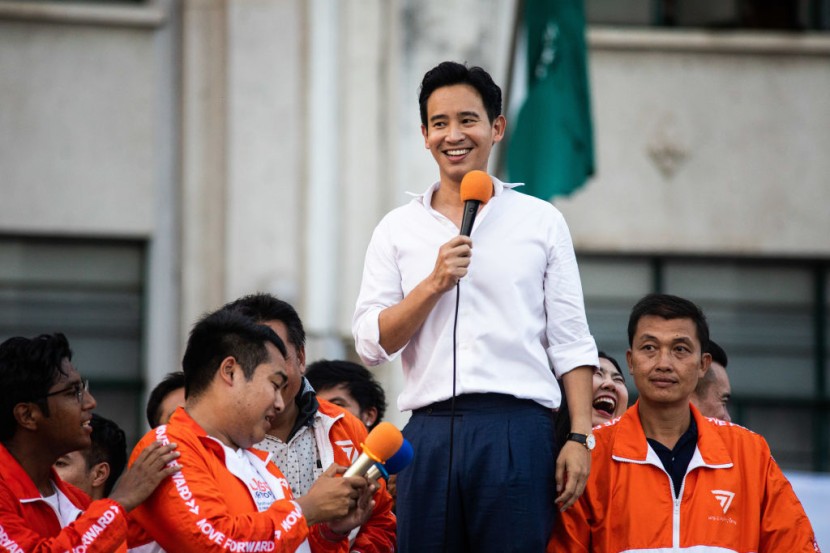After nine years of rule by the conservative military-backed bloc helmed by Prime Minister Prayuth Chan-Ocha, Thailand's pro-democracy groups have now come back.

The next leader will now face many challenges, such as the future of the economy that counts China as its biggest trading partner while navigating US and ASEAN relations. Reformist group 'Move Forward' and opposition stalwart Phew Thai is on track to win around 58 percent of seats in the House of Representatives, according to Bloomberg.
Therefore, this puts the pro-democracy group on strong leverage in choosing the prime minister where the Senate gets to vote along the lower house.
What It Means For Thailand
The success of Pita Limjaroenrat's Move Forward party shows that the people are not satisfied with the military junta's claim of political stability. This victory indicates that there is widespread support for reforms, including amending the law that prohibits insulting the king and members of the royal family. The lese majeste law is one of the harshest laws in the world, and violators can face up to 15 years in prison for any offense against the monarchy.
The election outcome is a letdown for Pheu Thai, a political party supported by Thaksin Shinawatra, a wealthy businessman who was removed from his position as prime minister and now lives in exile. Even though Thaksin's daughter Paetongtarn ran for the highest office, Thaksin's pro-farmer policies and advocacy for universal healthcare, known as "Thaksinomics," helped maintain consistent support for Pheu Thai in the rural area. Despite living abroad and facing a corruption conviction, Thaksin's political beliefs and strategies were still influential among the people.
For the first time since the beginning of the 21st century, a political party that Thaksin does not support has won the majority of seats in the lower house. This could suggest that the popularity of the Shinawatra family is declining.
What Comes Next
The leaders of Move Forward and Pheu Thai have come to an agreement to create a coalition led by Pita. This coalition will consist of four other parties. Pheu Thai is willing to discuss modifying the lese majeste law that Pita plans to bring up during parliament discussions.
A group of experts believed that the Senate could prevent Pita from becoming the country's leader, which could allow Pheu Thai to attempt to form a government with their supporters. They may also align themselves with conservative factions such as Bhumjaithai, a centrist party that advocates for the legalization of cannabis.
The recent political developments in Thailand have brought about a significant shift in the country's political landscape. With the emergence of new parties and coalitions, there is a growing sense of optimism among many Thai citizens that meaningful change may finally be within reach.
Despite these obstacles, many are determined to push forward toward greater democracy and accountability. With strong leadership from figures like Pita Limjaroenrat and support from progressive factions such as Move Forward Party, there is reason to believe that positive changes can be achieved.
At the same time, it remains important for all sides to engage with each other respectfully and constructively if they hope to make progress on key issues facing Thailand today.
This includes addressing long-standing grievances related to inequality, corruption, human rights abuses, and democratic deficits -all while navigating complex regional dynamics involving China, the US, and ASEAN countries who have stakes or influence over what happens next, politically speaking throughout Southeast Asia more broadly speaking.








